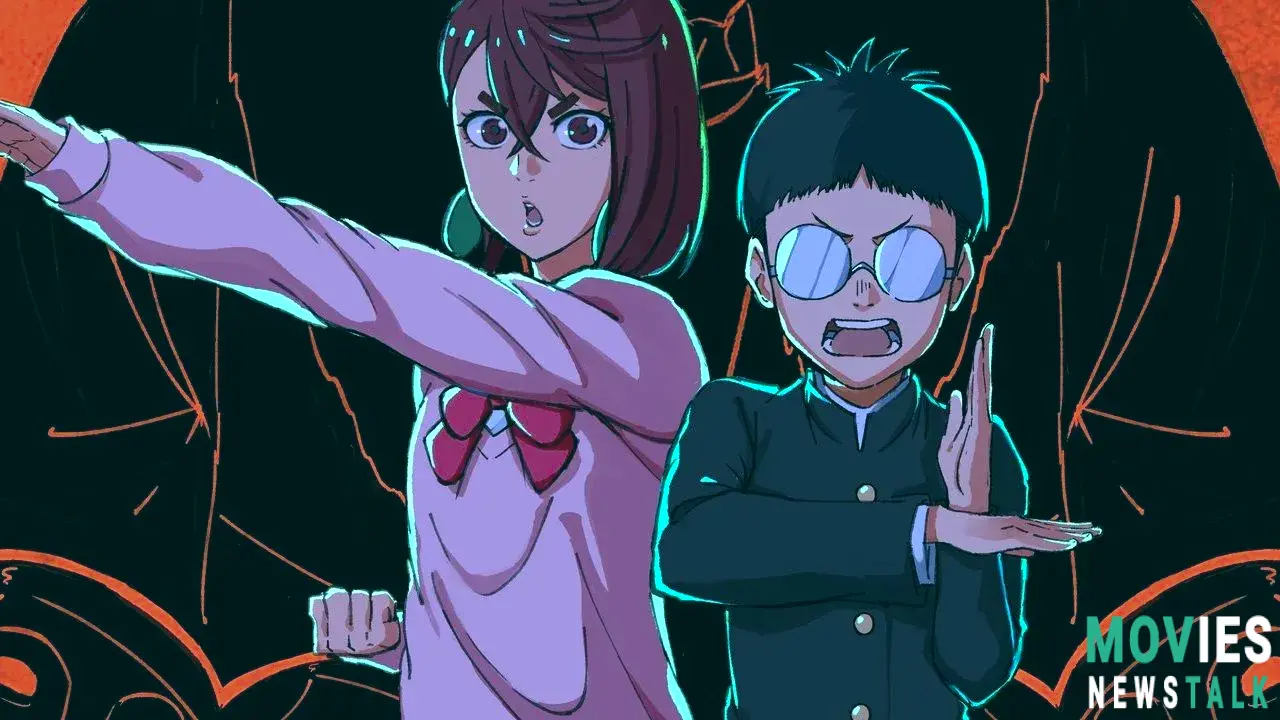Dan Da Dan Censored in China : A Level of Editing Not Seen Since 4Kids' One Piece!
Dan Da Dan Episode 3: The Big Censorship Surprise
Whoa, hold up! Dan Da Dan, that awesome anime with the crazy blend of supernatural battles and rom-com antics, just got hit with some seriously heavy censorship in China. Fans are NOT happy, especially because many of these edits feel totally unnecessary! This has brought back a flood of memories of 4Kids Entertainment's infamous One Piece dub – you know, the one with all those ridiculous edits, changes, and outright removals?
Censorship in anime? Totally common. But the Dan Da Dan changes shocked people – lots of outrage on social media. Many viewers compared it to older, infamous anime adaptations. We are in a world of super easy access to uncensored versions and this really made that unnecessary censorship that much more problematic for the involved viewers, generating enormous backlash. The reaction showcases just how out of touch this censorship really is, especially given how often uncut versions easily make it into streaming sites and other more commonly available locations today! Many fans question these actions today.
What Got Censored? The Surprisingly Mild Offenses!
Seriously, episode 3 ’s edits focused on China's strict rules – toning down those suggestive elements that many viewers found perfectly reasonable! Some might find this surprising. They obscured Seiko Ayase's revealing outfits, added extra clothes, and made more shadows. Her cigarette got changed to a lollipop, which sounds insane, almost mimicking what 4Kids did back in their original One Piece dub, (yes, this totally evokes many bad memories of those extremely ham-fisted alterations). While casual viewers might not notice all these small issues, those hardcore fans watching for subtle detail found major issues; this also showcases a great concern among these viewers regarding issues related to animation.
People outside China found this astonishing – relatively tame content subjected to massive censorship? Seriously! It even made many viewers questioning if these sorts of censorship decisions were actually necessary given that most modern audiences readily expect, and are largely accustomed to far less edits compared to earlier examples found through anime.
Global Outrage: A 2024 Backlash Against Heavy-Handed Censorship
The global reaction? Intense criticism! Fans compared it to past anime edits— especially 4Kids’ One Piece . But today? That heavy censorship feels seriously out of place! Services like Crunchyroll and Netflix generally air things minimally edited, showing that the audience itself has evolved; expectations of edits are lower, creating that sense of shock over an unexpected change for such a small deviation from expected viewing habits, triggering massive criticism online and even making several question the production choices behind the current project; a possible warning regarding production that some might not normally find applicable given its popularity and genre.
This isn't just about fans being annoyed – it also brings forth some important concerns, especially those aspects relating to artistic expression, highlighting a profound risk of modifying creative art and narratives, specifically the art that changed various elements within Dan Da Dan, creating an important question around artistic integrity that must be reconsidered when planning any modern releases!
Conclusion: A Modern World Needs Modern Censorship Policies
Dan Da Dan’s heavy-handed censorship is a really, really unfortunate situation. That unnecessary altering makes viewers question some very important themes around creative expression versus audience expectations which makes it critical to reiterate some important aspects for future production efforts! This incident also made people reassess censorship practices, as the changes ultimately don’t add value; harming the overall product quality that was expected and anticipated by a devoted fanbase which may ultimately lead to an overall decrease in fan engagement or might even drive some audiences away for good; thus showing that carefully weighing these sorts of editing is critical! We live in a much different world; viewers largely demand much, much less interference and audiences generally prefer much less altered media than previously existed; generating those massive outcries found online which only serves to negatively impact that specific production choice. So this kind of overly aggressive edit must end!

